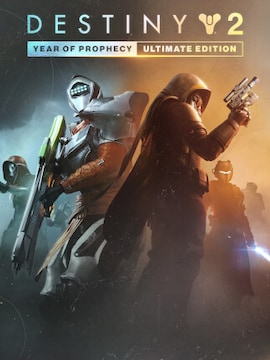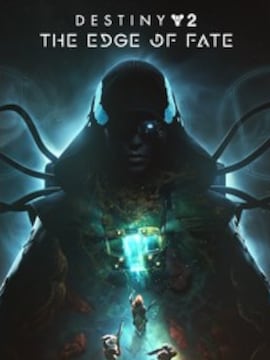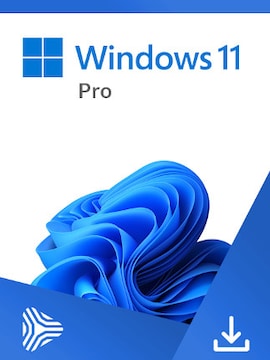Elden Ring set a high bar. FromSoftware’s open-world RPG took the Souls formula and blew it wide open, winning over critics and players alike with its vast world, deep lore, and unforgettable moments.
So when Elden Ring: Nightreign was announced, expectations naturally soared. What followed was a wave of excitement and just as much concern.
It’s no secret that Nightreign has split the FromSoft community. Some fans expected it. Others hoped it wouldn’t happen. But either way, the mixed response didn’t come out of nowhere. And for many, the criticism isn’t unfair—it’s rooted in genuine love for what FromSoft has built over the years.
Elden Ring Nightreign Controversy
At the heart of the debate is fear — fear that FromSoftware is drifting too far from what made its games so beloved. Fans who hold Elden Ring as the studio’s crowning achievement worry that Nightreign is tinkering with something that didn’t need fixing. That it’s using the Elden Ring name without carrying its spirit. And with Hidetaka Miyazaki not at the helm, some feel uneasy about what this new direction means.
A big part of the backlash comes from the sense that Nightreign is playing it safe commercially. Some call it a cash grab, designed to ride the wave of the Souls series’ popularity without offering the same level of depth or purpose. That kind of criticism hits harder when it’s aimed at a developer known for doing things its own way.
Key Differences from Previous Titles
Nightreign is, without a doubt, FromSoft’s most experimental release yet. And it shows in nearly every major design choice.
- The game mixes roguelike and survival mechanics, shifting away from the traditional RPG structure.
- It’s built around co-op. Bosses are designed to be tackled in groups, not alone. The whole game leans heavily into online multiplayer.
- Lore takes a back seat. While it’s set after the events of Elden Ring, the story is described as simpler and more disconnected from the original game.
- Core RPG features are missing. There’s no character creation. Instead, you pick from a set of predefined heroes.
- Fast travel and deep customization? Reportedly gone.
- One feature, a shrinking battle area — something players have compared to Fortnite — has raised plenty of eyebrows.
- Online play seems mandatory. Some players believe the game won’t work properly offline.
- Given FromSoft’s history with unstable servers, that last point hasn’t gone unnoticed.
Put together, these changes paint a picture of a game that’s moving away from what Souls fans are used to — and not everyone is excited about that.
Community Feedback
The reaction has been anything but mild.
Many long-time fans are disappointed. Some call the game a letdown, even going as far as to say it’s the first time FromSoft has truly missed the mark. The preset characters, the stripped-down RPG elements, the shift to online — it all adds up to an experience that feels, to them, like a step backward. Or worse, a soulless repackaging of content they already played.
This is game over-hated
byu/Commercial_Will_195 inNightreign
There’s also a sense of disillusionment. Some say Nightreign doesn’t feel like art in the way Dark Souls or Elden Ring did. For those fans, the magic is missing.
That said, not everyone is upset. Some welcome the shake-up. They argue that fans can’t complain about FromSoft making the same game over and over — then get angry when the studio tries something different. These players see Nightreign as a testing ground, a way to explore new ideas that might strengthen future titles. And some believe change is part of the studio’s DNA, not a betrayal of it.
Behind the Scenes
While Miyazaki isn’t directing this game, the team working on Nightreign includes veterans with serious experience. Some helped shape Bloodborne’s combat. Others led development on Dark Souls III or worked on Elden Ring. This isn’t a team without vision.
It’s also been suggested that Miyazaki encouraged these developers to try new things to break the mold. He’s reportedly busy with another project and is keeping a respectful distance from Nightreign unless directly involved.
The idea here seems clear: let the studio grow. Let other voices lead. Let the team test systems that might inform the next big Souls game. After all, even Dark Souls II, often seen as the series’ odd one out, helped inspire better ideas down the line.
And if Nightreign doesn’t land perfectly? Internally, it might not be a big deal. It’s not the studio’s flagship project, but a sign that FromSoft is open to risk, ready to experiment, and preparing for what comes next.
So Why All the Controversy?
The short answer: change.
Here’s what’s driving the pushback:
- Loss of identity: fans worry that FromSoft’s signature touch is slipping away. They fear Nightreign represents a break from the studio’s strengths.
- Perception of a cash grab: many feel the game exists more to capitalize on Elden Ring’s success than to build meaningfully on it.
- Major gameplay changes: the co-op focus, the simplified lore, the removal of core RPG features, and the “shrinking map” mechanic all feel jarring to longtime players.
- No Miyazaki: his absence is a sticking point for some. To them, he’s the soul of the Souls games. Without him, they fear the series could lose its way.
- Disappointment: some fans just feel let down. They see Nightreign as a lesser product that reuses old content, simplifies what made past games special, and pushes players into modes they didn’t ask for.
Still, there’s a camp that sees the value in all of this. For them, Nightreign is proof that FromSoft isn’t afraid to move forward – even if the path is messy.
In the end, Nightreign may not be the game everyone wanted. But maybe that’s the point. It’s risky, it’s different, and it’s shaking things up. Whether it succeeds or stumbles, it’s part of a bigger picture – a studio that refuses to stand still.




